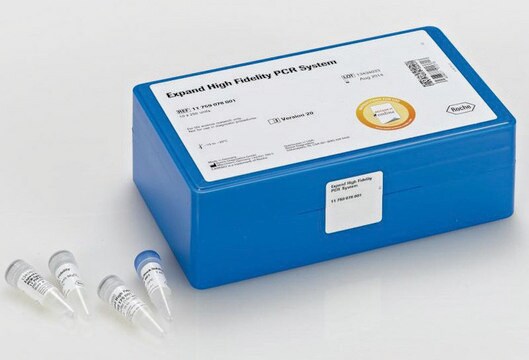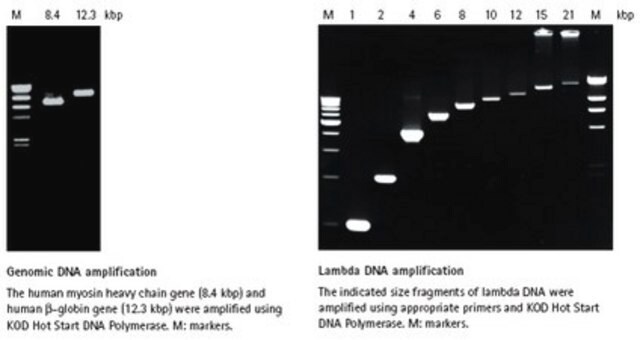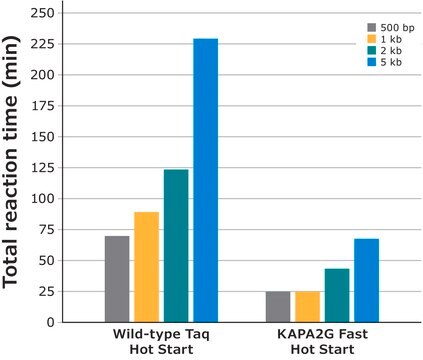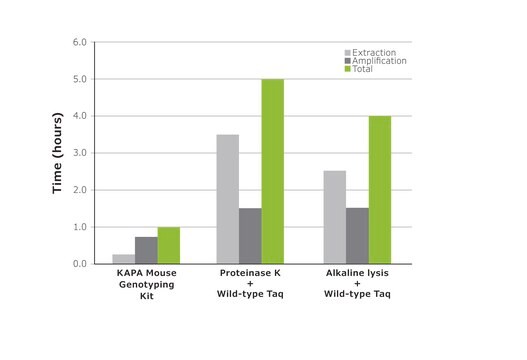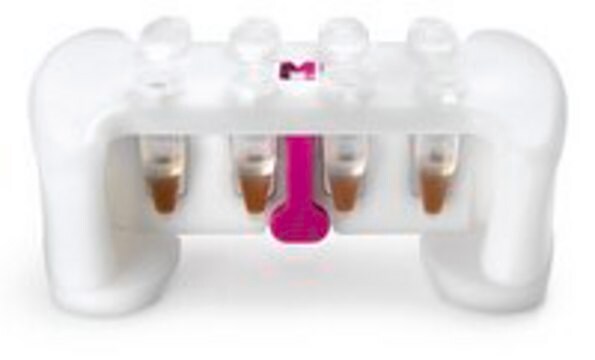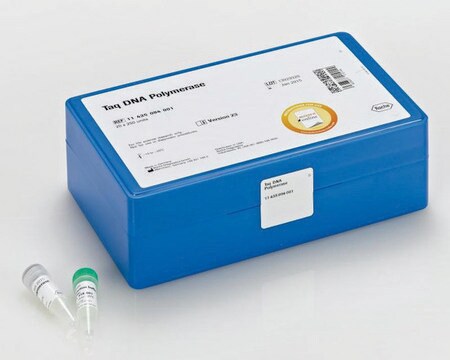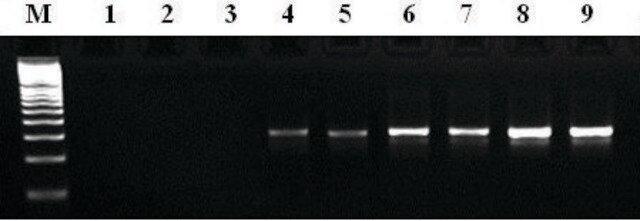PWOPOL-RO
Roche
Pwo DNA Polymerase
Sinónimos:
polymerase, dna, pwo
About This Item
Productos recomendados
origen biológico
microbial (Pyrococcus woesei)
Nivel de calidad
formulario
liquid
uso
sufficient for ≤200 reactions (11644955001)
sufficient for 200 reactions
sufficient for ≤40 reactions (11644947001)
sufficient for 40 reactions
actividad específica
≥5000 U/mL
mol peso
90 kDa
Características
High Fidelity PCR
dNTPs included: no
hotstart: no
envase
pkg of 100 U (11644947001)
pkg of 500 U (11644955001 [2 x 250 U])
fabricante / nombre comercial
Roche
concentración
2.5 units/reaction
técnicas
PCR: suitable
color
colorless
entrada
purified DNA
solubilidad
water: soluble
idoneidad
suitable for enzyme test
aplicaciones
genomic analysis
life science and biopharma
actividad extraña
Endonucleases with lambda-DNA 30 units, none detected
Nicking act using pBR322-DNA ≤30 units, none detected
temp. de almacenamiento
−20°C
Categorías relacionadas
Descripción general
The use of Pwo DNA Polymerase during PCR significantly reduces the occurrence of random amplification errors.
Aplicación
- Due to its proofreading activity, the thermostable Pwo DNA Polymerase has an extremely low error rate, 18-fold lower compared to Taq DNA Polymerase. It is therefore ideal for applications that require the highest possible fidelity in DNA synthesis. It can be applied for High fidelity PCR
- Cloning of PCR products
- Characterization of rare mutations
- PCR
Características y beneficios
- Excellent accuracy (18-fold more accurate than Taq DNA polymerase)
- High thermal stability
- Nearly as processive as Taq DNA polymerase
- Accepts modified nucleotides
Envase
Calidad
- Activity: The enzyme is tested on activated DNA.
- Function: The enzyme is tested in two PCRs, using λDNA and human genomic DNA as templates.
- Proofreading ability: Proofreading activity is assayed according to the laq Iq fidelity assay [Frey, B. & Suppmann, B. (1995) Biochemica 2. 8-9].
- Absence of nucleases: The enzyme is tested on various substrates to ensure the absence of detectable endonucleases, exonucleases, and nicking activity according to the current Quality Control procedures.
Definición de unidad
Unit Assay: Incubation buffer for assay on activated DNA
20 mM Tris-HCl, pH 8.8 (20 °C), 50 mM KCl, 2.5 mM MgCl2, 10 mM 2-mercaptoethanol, 0.2 mM of each dATP, dCTP, dGTP, dTTP.
Incubation procedure
12.5 mg activated calf thymus DNA and 0.1 mCi [α-32P]dCTP are incubated with 0.01 to 0.1 U Pwo DNA Polymerase in 50 μl incubation buffer with a paraffin oil overlay at +70 °C for 30 minutes. The amount of incorporated dNTPs is determined by trichloroacetic acid precipitation followed by scintillation counting.
Volume Activity: 5 U/μl
Nota de preparación
Modified nucleotides are substrates
Pwo DNA Polymerase accepts modified nucleotides like digoxigenin-dUTP, biotin-dUTP, or fluorescein-dUTP. Thus, it can add these nucleotides to DNA during PCR. These nonradioactively labeled products can be used as a hybridization probe in many applications.
Magnesium concentration
If you use the magnesium-containing reaction buffer supplied with the enzyme, the final MgCl2 concentration in the PCR will be 2.0mM. For other magnesium concentrations (e.g., for optimizing the reaction to accommodate a particular template), use the magnesium-free reaction buffer and add appropriate amounts of the magnesium stock.
Almacenamiento y estabilidad
kept upright to prevent leakage
Otras notas
Información legal
Solo componentes del kit
- Enzyme is supplied in storage and dilution buffer
- PCR buffer, with 20 mM MgSO4 10x concentrated
- PCR buffer, without MgSO4 10x concentrated
- MgSO4 stock solution
Frases de peligro
Consejos de prudencia
Clasificaciones de peligro
Aquatic Chronic 3
Código de clase de almacenamiento
12 - Non Combustible Liquids
Clase de riesgo para el agua (WGK)
WGK 2
Punto de inflamabilidad (°F)
does not flash
Punto de inflamabilidad (°C)
does not flash
Certificados de análisis (COA)
Busque Certificados de análisis (COA) introduciendo el número de lote del producto. Los números de lote se encuentran en la etiqueta del producto después de las palabras «Lot» o «Batch»
¿Ya tiene este producto?
Encuentre la documentación para los productos que ha comprado recientemente en la Biblioteca de documentos.
Los clientes también vieron
Nuestro equipo de científicos tiene experiencia en todas las áreas de investigación: Ciencias de la vida, Ciencia de los materiales, Síntesis química, Cromatografía, Analítica y muchas otras.
Póngase en contacto con el Servicio técnico

